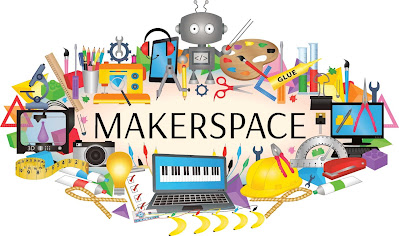Intersection of Information Literacy, Technology, & Digital Media
"Today we live in a technology and media-driven environment, marked by access to an abundance of information, rapid changes in technology tools and the ability to collaborate and make individual contributions on an unprecedented scale. Effective citizens and workers must be able to exhibit a range of functional and critical thinking skills such as: information literacy, media literacy, and Information, Communications, and Technology (ICT) literacy."
-Partnership for 21st Century Learning
 |
| Image from the American Psychological Association |
From the readings, resources, video, and podcast this week, I was able to see just how important it is for all school librarians, teachers, and educators to truly be information literate, up to date on technological trends and ideas, and have a deep understanding of digital media. In our society, all of these things do intersect constantly for our students, and the way we consume media has continued to change and evolve, even through the past few years. As social media and technology adapts and changes, so do the sources we use for information and our information seeking behaviors. For example, over the course of my own educational experiences, I have gone from mainly using books and encyclopedias for research, to instantly seeking answers from the internet and online resources exclusively.
I also thought it was interesting that Dr. Green highlighted the importance of our jobs, not just as teachers for our students, but also the role we play in our schools and communities, helping others develop their concept of information literacy. It is our job to help our co-workers, parents, and students understand that it means to be media and technologically literate, and as this area is ever changing and growing as technology adapts, we should be abreast of current trends and advances.
From my last class, The Curricular Role of the School Librarian, I was introduced to the concept of the Big 6 in researching with students. I thought it was a great way to give a name to each stage in the process, and a helpful guide to facilitate independent learning. This process helps students identify their topic, apply critical information seeking strategies, understand the importance of resources for location and access of information, and find unique ways to synthesize the information to share with others.
Some new ideas that were introduced this week were the six skills of the framework of information literacy (2015). The six pillar skills are:
- Authority is constructed and contextual
- Information creation as a process
- Information has value
- Research as inquiry
- Scholarship as conversation
- Searching as strategic exploration
As a school librarian, I feel that it is our responsibility to consume information from reliable and professional sources, that are unbiased, if at all possible. It is also our responsibility to be knowledgeable about current trends and issues, and be able to present multiple perspectives for our students. I found this website was particularly helpful in curating lessons for out students: News and Media Literacy because it helps students navigate social media, targeted ads, news sources, and even "deepfake" videos. For elementary aged students, it covers plagiarism, giving accurate credit to creators, finding credible sources, and not falling for outrageous clickbait headlines.
In addition to the podcast from this week, I feel that we are all inundated with skewed data, biased media sources, fake news. It is our responsibility to be aware of these current negative trends, be media literate ourselves, and be able to accurately sift through information to help guide our students through the muddied waters, as well.
References:
The Association of College and Research Libraries. (2015). Framework for information literacy for higher education. http://www.ala.org/acrl/files/issues/
infolit/framework.pdf
The Liturgists (Hosts). (2017, March 7). Fake news and media literacy[Audio podcast]. Google Podcasts. https://podcasts.google.com/queue?hl=en
The Partnership for 21st Century Learning. (2015). P21 framework definitions. https://files.eric.ed.gov/fulltext/ED519462.pdf





Comments
Post a Comment